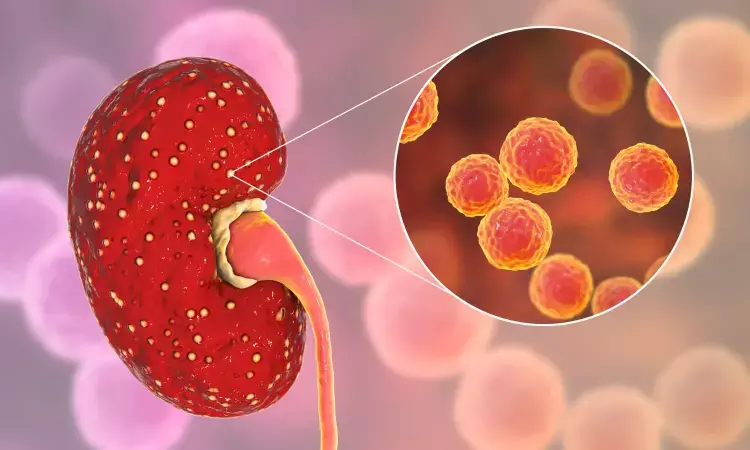- Home
- Medical news & Guidelines
- Anesthesiology
- Cardiology and CTVS
- Critical Care
- Dentistry
- Dermatology
- Diabetes and Endocrinology
- ENT
- Gastroenterology
- Medicine
- Nephrology
- Neurology
- Obstretics-Gynaecology
- Oncology
- Ophthalmology
- Orthopaedics
- Pediatrics-Neonatology
- Psychiatry
- Pulmonology
- Radiology
- Surgery
- Urology
- Laboratory Medicine
- Diet
- Nursing
- Paramedical
- Physiotherapy
- Health news
- Fact Check
- Bone Health Fact Check
- Brain Health Fact Check
- Cancer Related Fact Check
- Child Care Fact Check
- Dental and oral health fact check
- Diabetes and metabolic health fact check
- Diet and Nutrition Fact Check
- Eye and ENT Care Fact Check
- Fitness fact check
- Gut health fact check
- Heart health fact check
- Kidney health fact check
- Medical education fact check
- Men's health fact check
- Respiratory fact check
- Skin and hair care fact check
- Vaccine and Immunization fact check
- Women's health fact check
- AYUSH
- State News
- Andaman and Nicobar Islands
- Andhra Pradesh
- Arunachal Pradesh
- Assam
- Bihar
- Chandigarh
- Chattisgarh
- Dadra and Nagar Haveli
- Daman and Diu
- Delhi
- Goa
- Gujarat
- Haryana
- Himachal Pradesh
- Jammu & Kashmir
- Jharkhand
- Karnataka
- Kerala
- Ladakh
- Lakshadweep
- Madhya Pradesh
- Maharashtra
- Manipur
- Meghalaya
- Mizoram
- Nagaland
- Odisha
- Puducherry
- Punjab
- Rajasthan
- Sikkim
- Tamil Nadu
- Telangana
- Tripura
- Uttar Pradesh
- Uttrakhand
- West Bengal
- Medical Education
- Industry
Febuxostat significantly benefits renal function-related indices in gout patients: Study

Two commonly prescribed medications for gout treatment are febuxostat and benzbromarone. However, their clinical efficacy remains a subject of debate.
A European Review for Medical and Pharmacological Sciences study concluded that Febuxostat significantly benefits renal function-related indexes, including the estimated glomerular filtration rate (eGFR), Cr, and blood urea nitrogen (BUN). In contrast, benzbromarone is more effective in reducing uric acid (UA) and has relatively less hepatotoxicity.
This meta-analysis aimed to evaluate the efficacy of febuxostat and benzbromarone in treating gout.
The search included PubMed, Embase, and the Cochrane Library for articles on febuxostat and benzbromarone from inception to January 7, 2023. Titles and abstracts were reviewed using predefined criteria, and data were extracted independently. The Newcastle-Ottawa Scale was used to assess study quality, and continuous variables were expressed as standard mean square error by STATA 16. Sensitivity analysis was conducted by randomly removing a study, and heterogeneity was analyzed through funnel plots and Egger's test.
Key findings from the study are:
- A total of 1,043 publications were retrieved from the databases.
- Owing to duplication, 45 publications were excluded.
- Fourteen studies remained after screening titles and abstracts. Seven studies met the inclusion criteria.
- Meta-analysis showed that the uric acid (UA)--reducing the effect of febuxostat is better than benzbromarone.
- Febuxostat demonstrated a better ability to improve the eGFR and reduce Cr and BUN.
- Considering hepatotoxicity, benzbromarone was not as potent as febuxostat in increasing alanine transaminase (ALT) and aspartate transaminase (AST). This suggests that benzbromarone has less hepatotoxicity.
- There was no significant difference in the effect on blood lipid levels between the two drugs.
They said Febuxostat improves renal function and benefits indices like eGFR, Cr, and BUN, while benzbromarone is better at lowering UA and causes less liver damage.
Reference:
Yan CQ et al. Comparison of the efficacy of febuxostat vs. benzbromarone in the treatment of gout: a meta-analysis in Chinese gout patients. Eur Rev Med Pharmacol Sci. 2023 Dec;27(24):11988-12003.
BDS, MDS in Periodontics and Implantology
Dr. Aditi Yadav is a BDS, MDS in Periodontics and Implantology. She has a clinical experience of 5 years as a laser dental surgeon. She also has a Diploma in clinical research and pharmacovigilance and is a Certified data scientist. She is currently working as a content developer in e-health services. Dr. Yadav has a keen interest in Medical Journalism and is actively involved in Medical Research writing.
Dr Kamal Kant Kohli-MBBS, DTCD- a chest specialist with more than 30 years of practice and a flair for writing clinical articles, Dr Kamal Kant Kohli joined Medical Dialogues as a Chief Editor of Medical News. Besides writing articles, as an editor, he proofreads and verifies all the medical content published on Medical Dialogues including those coming from journals, studies,medical conferences,guidelines etc. Email: drkohli@medicaldialogues.in. Contact no. 011-43720751


